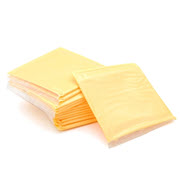|
Seashell Salesman posted:Does any of this sound crazy, has anyone tried constructing and using EarthTainers? I have homemade earthboxes and a real earthbox. It's almost worth it to spend the extra money and get a real one. They are more durable and look nicer. But the homemade ones work just as well.
|
|
|
|

|
| # ? Jun 5, 2024 18:20 |
|
 My ghetto kitchen windowsill seed garden. In the cheapo propagator are lettuce, bell pepper and mixed salad leaf seedlings. In the shoebox are courgettes, and in the shoebox lid are butternut squash seeds I planted today. I find that half the fun of growing my own veg is trying to be as cheap as possible. I got all of this stuff given to me and reused the shoebox to make a double tier space. The only thing I paid for are the seeds, and I've tried to store those for next year by putting them in tupperware in the fridge. Now I'm off to build some raised beds using scrap wood. 
|
|
|
|
If you throw a few silica gel packets in with your seeds, they'll last even longer.
|
|
|
|
A flying piece of posted:Companion Planting: That's all very good info, thanks.  I found my bag of seed pouches. Let's see what I've got... In the "herbs and greens" section, I've got:
In the "veggies" section, I have:
I also have a few packs of flowers which I'll be planting around wherever they would look nice. As far as the tomatoes are concerned, I'm kind of apprehensive about the monster tomatoes. I like the heirlooms, but do I need huge tomatoes? I'm not entirely sure. What I really want out of the whole thing is to keep the herbs alive all year for free spices. The veggies are a good bonus. I also really want to try those dragon tongue beans. They look amazing. Anyone have any extra advice concerning my seed choices? If it makes a difference, they're all either Burpee or Ferry Morse brand.
|
|
|
|
jovial_cynic posted:WORMS. Iíd be very curious what you find out and what works for you. Back when I was renting I tried vermicomposting in a spare room and it went horribly awry. I think I made it too wet, or didnít have enough air holes because the whole thing went anaerobic on me. The entire thing became a smelly disaster and all the worms died. I donít know how practical this is, but I wonder if it will solve 2 composting problems I have. Iím a home owner now and I have big trees on my property and 95% of the organic matter I have available is fallen leaves. I put them in a big pile in these wire hoops. They heat up nicely and make good progress in the fall for about 3 weeks until it gets cold and then they freeze solid. They get buried under snow and then it rains on them and they compress and sit there. In spring the tops and sides dry out and the middle gets wet and slimy. After I rebuild the piles and mix the wet interior and dry exterior, they heat up again. But 3 weeks after that I want to use the compost, except it is at best half decayed. The other issue I have is what to do with the regular kitchen waste in the winter. I add it to the leaf pile and when the snow melts enough and the pile thaws out I cover it with leaves. Iím wondering if I can bring the leaves into my basement and have the worms work it through the winter and then I would have something more finished in the spring. I could add my winter kitchen waste to the leaves. But I would need a way bigger bin than you have. Hopefully it wouldnít smell.
|
|
|
|
A chipmunk is burying peanuts in the flower pots that my tomatoes are in.
|
|
|
|
FogHelmut posted:A chipmunk is burying peanuts in the flower pots that my tomatoes are in. Probably to hard for him to dig in? I dunno. As far as the composting question, off the top of my head I'd say either bring it inside or it may be that you need to save and continue composting the stuff for at least a year. You'd save the stuff from fall, it would partially compost, then let it compost through the spring, summer, and following fall, then use it next spring. Sure, that doesn't help you now, but next year, you'd have some really nice compost.
|
|
|
|
Raspberries or grapes? We have a wall that is both south and west-facing. It gets LOTS of sun. It's also ugly as sin. We have decided we want to plant either grapes or raspberries to cover the wall with (with underlying support structure/trellising if necessary). Does anybody have any pros/cons of either for me? I am familiar with wild raspberries and not real familiar with grapes at all. Southern California.
|
|
|
|
I've made my raised beds out of scrap wood. (They're 6ft x 3ft x 1ft.) Now my gardening success depends on two things. 1. My dad agreeing to have these things in his garden. He agreed to having raised beds, but I don't think he realised how much room they'd take. 2. Me being able to get some topsoil and compost for cheap. 1 ton of topsoil costs £70, and I'm going to need more than that to fill these. There's no way I can afford that, and it defeats the purpose of growing my own veg -- to save money! I've put out wanted ads on a few Freecycle groups, hopefully someone bites before my seedlings need planting out. Otherwise this wood goes back to being firewood and the seedlings are given away. 
|
|
|
|
Umbriago posted:I've made my raised beds out of scrap wood. (They're 6ft x 3ft x 1ft.) There was a book put out a few years ago called the $64 tomato. It is a bit tongue and cheek, but it talks about one gardeners joy and drama growing the perfect tomato. With the little bits of land that most of us have to work with, and the time it takes to do everything, gardening is probably a horrible investment. For the time you spent building those things, the time to grow the plants, weed them, fret over them, if you got a second job that paid minimum wage you could afford to buy twenty times as many calories and nutrients as you will get from those raised beds. So why do I garden if I canít compete with the factory farms on cost? It connects me to the earth, it makes me appreciate what farmers to do, and my ancestors who had to do it to eat, it is a sense of accomplishment when you can scratch food out of the earth, it is tastier, fresher, and more nutritious than the stuff that is trucked to the store, I see my neighbors and have a reason to talk to them when Iím outside. My garden is a lot prettier than the overgrown brush that was there when I bought my house. So what am I saying? If you donít have topsoil and you need to buy some, spend the £70. Or £140 if thatís what it takes. I donít know what your financial situation is and I apologize in advance if that is a lot of money for you, but over the course of a year, you will spend that much on a data plan if you have a smart phone. Itís not that much money in the scheme of things.
|
|
|
|
You're right, but right now it is a lot of money for me as I finished my contract last week and don't have another job lined up yet. If my Freecycle ads don't turn anything up I will just dig through the lawn and into the earth I think, and place the beds around as borders.
|
|
|
|
Cathis posted:Raspberries or grapes? Will the grapes be ornimental or for consumption? Homemade wine or seedless table grapes? Grapes really need 100% sun light and access to wind. If you don't have these you will be fighting fungi and bacteria.
|
|
|
|
Bigdee4933 posted:Will the grapes be ornimental or for consumption? Homemade wine or seedless table grapes?
|
|
|
|
Cathis posted:It's definitely the sunniest part of the house. Wind, I am not sure about, how much wind are we talking? Wine grapes, not eating grapes, preferably. Enough to blow through to help dry out your canopy. In Kentucky we have a huge problem of moisture. It's been raining non-stop for the last month. This is the time we pick up our primary infections. Phomopsis, Black Rot, and Crown Gall can be spread through the rain splashing over wintered disease. We pretty much have to spray here, but my University is working on some research. Our president of the University wants our vineyard expansion to be Bio-dynamic so we are going to have to figure something out. Anyway, http://www.doubleavineyards.com/ is a good place to shop around. Make sure if you are getting vinifera (non hybrid wine grapes) that they are grafted to an american root stock. You can see one of our trellising systems in this picture I already posted. The ornamental trellises are not terribly great if you are not planning on pruning the poo poo out of the grape vines. Bigdee4933 posted:Here is a great book from OSU about grapes http://ohioline.osu.edu/b919/pdf/b919.pdf . It's more geared to our region but it has a ton of useful information.
|
|
|
|
Umbriago posted:You're right, but right now it is a lot of money for me as I finished my contract last week and don't have another job lined up yet. If my Freecycle ads don't turn anything up I will just dig through the lawn and into the earth I think, and place the beds around as borders. I hear you. It doesn't need to be an all or nothing thing. I would hate to see those beautiful raised beds become firewood. Good luck with the job search. Actually you gave me an idea. Or a brainfart. Or something in between. Building on my basement vermicomposting idea, why not build something like your raised beds, dump my half-decayed leaves in there, make a layer about a foot thick, and let them do their thing? I never have enough kitchen waste at one time to make a functioning compost pile so I could them as needed. I have several cubic meters of leaves to work with.
|
|
|
|
Cathis posted:Raspberries or grapes? I'm guessing that in Southern California you will not have much of a fungus problem. you're right! \/\/\/ Zeta Taskforce fucked around with this message at 02:26 on May 4, 2011 |
|
|
|
Zeta Taskforce posted:I'm guessing that in Southern California you will have much of a fungus problem. I assume you mean will not.. and as it's currently 92 degrees with really low humidity, summer has begun! :/ My poor plants.
|
|
|
|
Umbriago posted:I've made my raised beds out of scrap wood. (They're 6ft x 3ft x 1ft.) Check your county landfills if you're willing to accept the 'risks' (Note: I was told by the county extension office and the local nursery that I would PROBABLY be alright using landfill compost for consumables). I got all of the compost for my 3 8x4 raised beds for free from them. The main problem is that not every county screens their compost for chemicals (mine doesn't), so you don't really know what's in there. Whatever lawn scraps and brush is brought to the landfill and/or picked up by the county services is composted. If you go this route, I'd advise you to do your own research instead of taking my word on it if your landfill doesn't do tests.
|
|
|
|
Zeta Taskforce posted:I'm guessing that in Southern California you will not have much of a fungus problem. Powdery Mildew, which crazy enough is less of a problem in wetter areas.
|
|
|
|
Bigdee4933 posted:Powdery Mildew, which crazy enough is less of a problem in wetter areas. Oh, don't remind me. It destroyed my squash last year. Even weirder, it is worse in shade. Which I have plenty of.
|
|
|
|
Zeta Taskforce posted:I hear you. It doesn't need to be an all or nothing thing. I would hate to see those beautiful raised beds become firewood. Good luck with the job search. Actually that's called lasagna gardening and is gaining in popularity now. It sounds perfect for smaller raised beds.
|
|
|
|
Pluto posted:Actually that's called lasagna gardening and is gaining in popularity now. It sounds perfect for smaller raised beds. I was thinking of building it in my basement and leaving there on the floor and filling it with leaves. Maybe I could use the castings for houseplants and my seedlings next year. I'm probably a category of my own. 
|
|
|
|
*sigh* I wish I had a basement. Stupid louisiana water table.
|
|
|
|
Seconded on the mold in SoCal. I lost a squash and a zucchini last year due to mold. In the 95+ humid free summer.
|
|
|
|
Now I'm thinking about trying grapes here in southern MN. It does get wet, but in our area there is plenty of wind. We do have some blackberries and golden raspberries starting out.
|
|
|
|
Umbriago posted:I've made my raised beds out of scrap wood. (They're 6ft x 3ft x 1ft.) At worst, raised bed for sale, £20 on craigslist/local equivalent.  Use those proceeds to fill one of them and just plant directly into the soil for the others for now. Use those proceeds to fill one of them and just plant directly into the soil for the others for now.
|
|
|
|
It's been a busy few days in my tiny garden, which is turning out to be not so tiny after all. The original plan was to stick mint, rocket and radishes in pots and try to not kill them. Since my manager saw them he's been getting very enthused about the idea and I now have pretty much the whole of the rooftop to work with. Which means I also have sun, giving me far more plants I can potentially grow. So far as well as the unkillable triad I've put down a small windowbox (OK, technically a cardboard box nowhere near the window, but the right shape and size!) with mustard, basil, thyme and dill. Fortunately I've got quite the backlog of seeds for things I've tried growing in the past. I was thinking maybe dwarf beans next? The only thing putting me off is that they seem to want a huge pot each to grow in.
|
|
|
|
dwoloz posted:I had rotting zucchini ends late in the season last year but it was moisture related Yeah that's it, is there anything I can do to stop it or make it better? What causes it, is it just in the soil?
|
|
|
|
Zeta Taskforce posted:I donít know how practical this is, but I wonder if it will solve 2 composting problems I have. Iím a home owner now and I have big trees on my property and 95% of the organic matter I have available is fallen leaves. I put them in a big pile in these wire hoops. They heat up nicely and make good progress in the fall for about 3 weeks until it gets cold and then they freeze solid. They get buried under snow and then it rains on them and they compress and sit there. In spring the tops and sides dry out and the middle gets wet and slimy. After I rebuild the piles and mix the wet interior and dry exterior, they heat up again. But 3 weeks after that I want to use the compost, except it is at best half decayed. The other issue I have is what to do with the regular kitchen waste in the winter. I add it to the leaf pile and when the snow melts enough and the pile thaws out I cover it with leaves. I don't know anything about vermiculture (we had worms once as a kid, got rid of them, don't remember why) but whenever I've made leaf mould it's been in heavy duty black plastic sacks with a couple of holes carefully punched in the bottom. If you have enough leaves to fill several bags I'd stack them in a pile somewhere sheltered (e.g against the shed) and it should keep the warmth in a little longer.
|
|
|
|
Devoyniche posted:Yeah that's it, is there anything I can do to stop it or make it better? What causes it, is it just in the soil?
|
|
|
|
A flying piece of posted:Check your county landfills if you're willing to accept the 'risks' (Note: I was told by the county extension office and the local nursery that I would PROBABLY be alright using landfill compost for consumables). I got all of the compost for my 3 8x4 raised beds for free from them. The main problem is that not every county screens their compost for chemicals (mine doesn't), so you don't really know what's in there. Whatever lawn scraps and brush is brought to the landfill and/or picked up by the county services is composted. If you go this route, I'd advise you to do your own research instead of taking my word on it if your landfill doesn't do tests. I asked about my local compost program (Kitchener, ON) and got this response back. It sounds like they've really got their act together here. Region of Waterloo posted:All the compost that we produce is derived from yard waste and leaves. The finished compost undergoes required testing to meet provincial guidelines and must be beneficial to the soil. We use three laboratories when testing our compost. One tests for organic compounds such as found in herbicides and pesticides, another tests for inorganic trace metals, and we do voluntary testing for nutrients. The compost is safe for human use, and an excellent soil enhancer for fruit and vegetable plants, trees and flowers. However, certain plants do not respond well to compost (such as birch trees which require sandy soil) so we ask users to find out more about the needs of their plants.
|
|
|
|
madlilnerd posted:I don't know anything about vermiculture (we had worms once as a kid, got rid of them, don't remember why) but whenever I've made leaf mould it's been in heavy duty black plastic sacks with a couple of holes carefully punched in the bottom. If you have enough leaves to fill several bags I'd stack them in a pile somewhere sheltered (e.g against the shed) and it should keep the warmth in a little longer. You're right about the fact that I don't need to vermicompost the whole lot. Probably makes sense to use a few bushels at most to use as the bedding so I can better process the constant low stream of organic waste coming out of the kitchen. The bulk of it I will leave outside, use some for mulch and allow the rest to turn into leaf mold.
|
|
|
|
Zeta Taskforce posted:I hear you. It doesn't need to be an all or nothing thing. I would hate to see those beautiful raised beds become firewood. Good luck with the job search. Added benefit if you can successfully get that compost pile stoked up over the winter: free heat.
|
|
|
|
First harvest today! We have swiss chard, red leaf amaranth, malabar spinach, baby crookneck squash, and one lonely cucumber.
|
|
|
|
Pluto posted:First harvest today! We have swiss chard, red leaf amaranth, malabar spinach, baby crookneck squash, and one lonely cucumber. Did you lose the other cucumbers, or was that the only one that grew at all?
|
|
|
|
That one was an overachiever, the plants are about a foot an a half high and just getting female blossoms.
|
|
|
|
As a beginner gardener starting from seed, there sure is a lot of information to take in. I live in southern Arizona so I'm trying to grow drought resistant plants that I can keep outside. I do plan on doing some indoor plants, but I want to focus on the cacti and succulents first. My first attempt is going to be pitaya cacti since I've read they're really easy to start. I've already made stupid mistakes that killed off my first couple attempts. Thankfully pitaya fruits have thousands of seeds per fruit, so I can try multiple times. I'm currently trying different methods to get about a dozen seedlings. I'm trying wet paper towel and cotton ball germination method. They cracked open with 2-3mm roots. I put a few in different soil mixtures to see what works better. Hopefully I'll see something green in a week Also I'm trying peat pellets with which I used about 100 seeds. This is day 2.5 and seen some seeds cracked open (some are buried less than 1/2 inch, some just plopped on top). I may have killed them earlier today when I left them outside too long in the sun. By noon it was about 90F and they were steaming hot. I put them back inside and hope not all died. I have dozens more seeds in between the wet paper towels and cotton balls to see how much more they'll try rooting and then plant those. I've read successful sprouting with different potting mixtures, so I tried a couple of them. I wish I took some advice from earlier in the thread about sifting out bigger chunks of rock and wood in the compost.
|
|
|
|
I grow everything from seed and the best germination method I've had is sticking the seed in some seed starter mix and putting it in a dome. Things like paper towel germination and rockwool never worked worth a crap for me. I figure seeds are meant to sprout in soil, so why fight it?
|
|
|
|
Yea, that's what I going to attempt next week if my current dome doesn't have steamed seeds. Next time it's not going to see the outside world until I see thorns. I didn't realize it was getting so drat hot so quickly. Just a couple weeks ago it was nice and sunny around 80F everyday. Now it's nearing 100F late morning which caught me off guard, so I can't put anything outside.
|
|
|
|

|
| # ? Jun 5, 2024 18:20 |
|
So, I'm going to be buying the pots and soil for my first attempt at container gardening tomorrow. I want to make sure I do things right though, so I'm wondering if there's any particular rules or methods I need to follow, and if they differ between vegetables and herbs. What I'm planning on doing is buying some basic single plant sized pots (is there any real difference between plastic and clay?) and just filling them with potting soil and then sewing seeds according to the package instructions, then letting them grow indoors for a bit till the weather becomes consistently warm before moving them outside. I've read various things that I should also do, like put some gravel in the bottom for drainage, use seed starter on top, add compost, etc. etc., but I'm not sure how important, if at all, those things are. Is there anything I'm forgetting? Any good tips to remember?
|
|
|






















